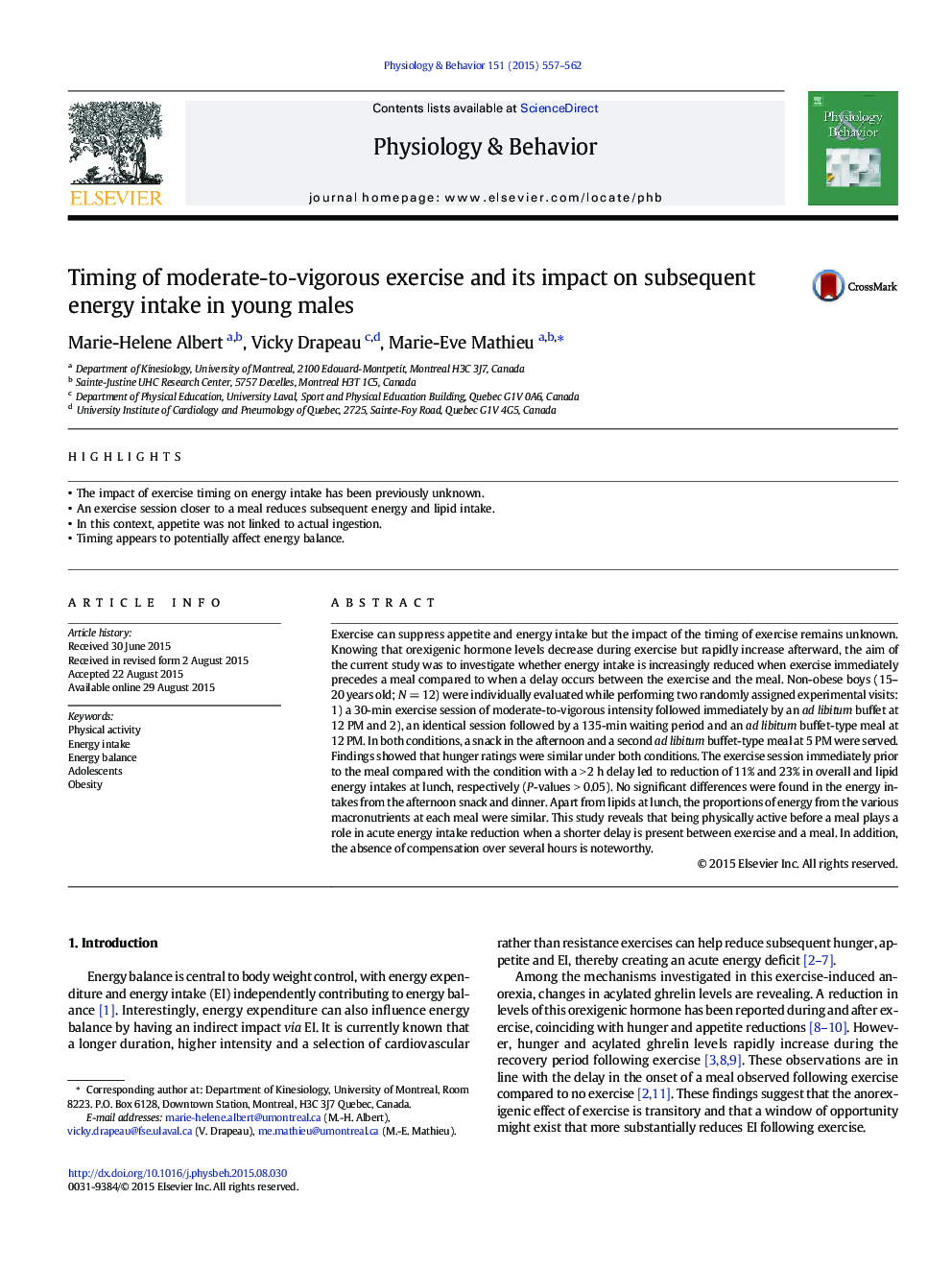| کد مقاله | کد نشریه | سال انتشار | مقاله انگلیسی | نسخه تمام متن |
|---|---|---|---|---|
| 5923364 | 1571166 | 2015 | 6 صفحه PDF | دانلود رایگان |
- The impact of exercise timing on energy intake has been previously unknown.
- An exercise session closer to a meal reduces subsequent energy and lipid intake.
- In this context, appetite was not linked to actual ingestion.
- Timing appears to potentially affect energy balance.
ABSTRACTExercise can suppress appetite and energy intake but the impact of the timing of exercise remains unknown. Knowing that orexigenic hormone levels decrease during exercise but rapidly increase afterward, the aim of the current study was to investigate whether energy intake is increasingly reduced when exercise immediately precedes a meal compared to when a delay occurs between the exercise and the meal. Non-obese boys (15-20 years old; N = 12) were individually evaluated while performing two randomly assigned experimental visits: 1) a 30-min exercise session of moderate-to-vigorous intensity followed immediately by an ad libitum buffet at 12 PM and 2), an identical session followed by a 135-min waiting period and an ad libitum buffet-type meal at 12 PM. In both conditions, a snack in the afternoon and a second ad libitum buffet-type meal at 5 PM were served. Findings showed that hunger ratings were similar under both conditions. The exercise session immediately prior to the meal compared with the condition with a > 2 h delay led to reduction of 11% and 23% in overall and lipid energy intakes at lunch, respectively (P-values > 0.05). No significant differences were found in the energy intakes from the afternoon snack and dinner. Apart from lipids at lunch, the proportions of energy from the various macronutrients at each meal were similar. This study reveals that being physically active before a meal plays a role in acute energy intake reduction when a shorter delay is present between exercise and a meal. In addition, the absence of compensation over several hours is noteworthy.
Journal: Physiology & Behavior - Volume 151, 1 November 2015, Pages 557-562
